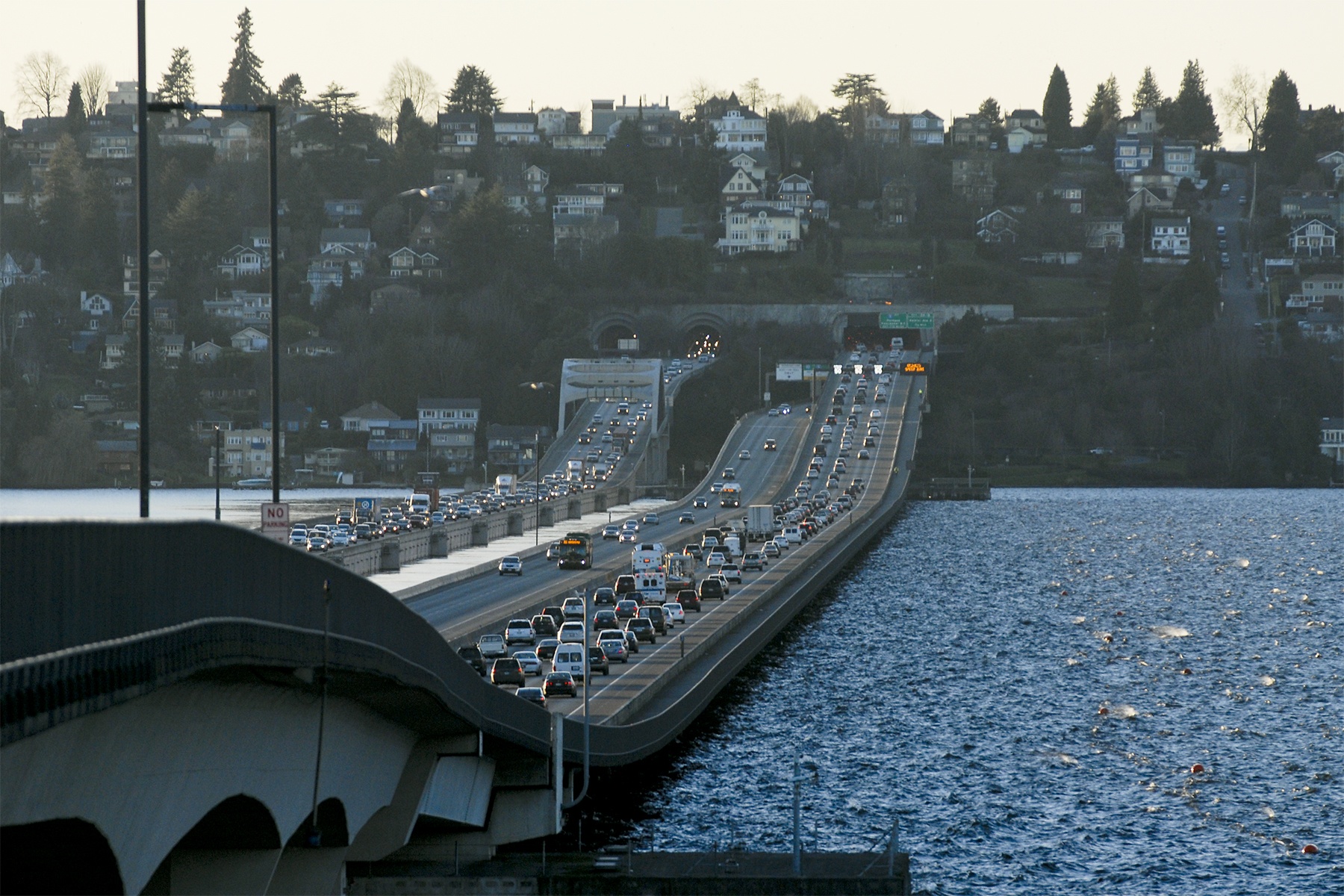An Islander who received a ticket for driving alone in the Interstate-90 HOV lane in downtown Seattle is going to court to fight for the access he feels is guaranteed by a 1976 agreement between the state of Washington and local municipalities.
The agreement was signed by the cities of Seattle, Mercer Island and Bellevue, along with King County Metro and the Washington State Highway Commission, prior to I-90 construction. It grants access to the I-90 transit lanes, in order of priority, first to transit, then carpools, then to Mercer Island traffic, as long as the speed stays above 45 miles per hour. After the bridge was built, signs were placed at the Island Crest Way and Rainier Avenue exits stating that Island-only traffic must exit.
In fact, the 1976 agreement should grant passage between Mercer Island, downtown Seattle and downtown Bellevue, according to Island resident and lawyer Scott Milburn.
After a hearing in Seattle. Milburn is now appealing to King County Superior Court. He said he asked the city to support him, but that city officials have displayed a consistent “lack of any interest in pursuing it.”
“The minute those signs went up, they should have walked into court and, assuming that I’m right in my interpretation, they would have gotten a court order that said that those signs are inappropriate,” Milburn said. “The city has, in my mind, been derelict in supporting the interests of the citizens in this.”
According to the Washington State Department of Transportation (WSDOT) website, single-occupant vehicles (SOV) may use the express lanes between Island Crest Way on Mercer Island and Rainier Avenue in Seattle. East of Island Crest and west of Rainier, the express lanes are open to high-occupant vehicle (HOV) traffic only.
Milburn argues that there is no justification or language in the 1976 agreement that restricts Island access just to this section of the freeway.
The agreement “applies to all the I-90 transit lanes between downtown Seattle and downtown Bellevue, and it contemplates both reversible and two-way directional mode transit lanes. The 1976 agreement recognized that the configuration of the transit lanes might change with time and need, as indeed they have,” according to a brief Milburn filed on June 16 in King County Superior Court.
Milburn first went to the Seattle Municipal Court to contest the citation, using the 1976 agreement as his defense. The judge ruled that the entire agreement was unenforceable, and Milburn is appealing that decision. His hearing is on Aug. 26.
“They could have very simply said, and Mercer Island traffic between this point and this point and it would have been clear,” Milburn said. “But it doesn’t say that.”
Justin Fujioka, WSDOT public information officer, said that it was a determination made by traffic engineers for “traffic and safety reasons.” He also said that the point may be moot next year, as the center lanes of the I-90 floating bridge close for East Link light rail construction in mid-2017. The 1976 agreement was amended in 2004 to reflect this development.
Milburn said that it’s worth it to continue the legal battle because he believes that the agreement not only allows SOV Island traffic to use transit lanes to Seattle, but also up to Northeast Eighth Street in Bellevue.
He said that it should theoretically apply to the new HOV lanes currently being added to the outer roadways of I-90 through WSDOT’s R8A plan as well.
Milburn has been updating fellow Islanders on his appeal through posts on NextDoor. But, he says it is not an issue of Mercer Island privilege. The agreement encompasses everyone going to and coming from the Island — not just residents. This could, admittedly, raise an enforcement issue for cities and police departments, but that’s “not our issue,” Milburn said.
“If I’m right, school teachers who live in Issaquah wouldn’t have to sit in traffic across East Channel Bridge,” he said.
The 1976 agreement can be viewed at www.mercergov.org/files/I-90%20MOA%201976.pdf.


